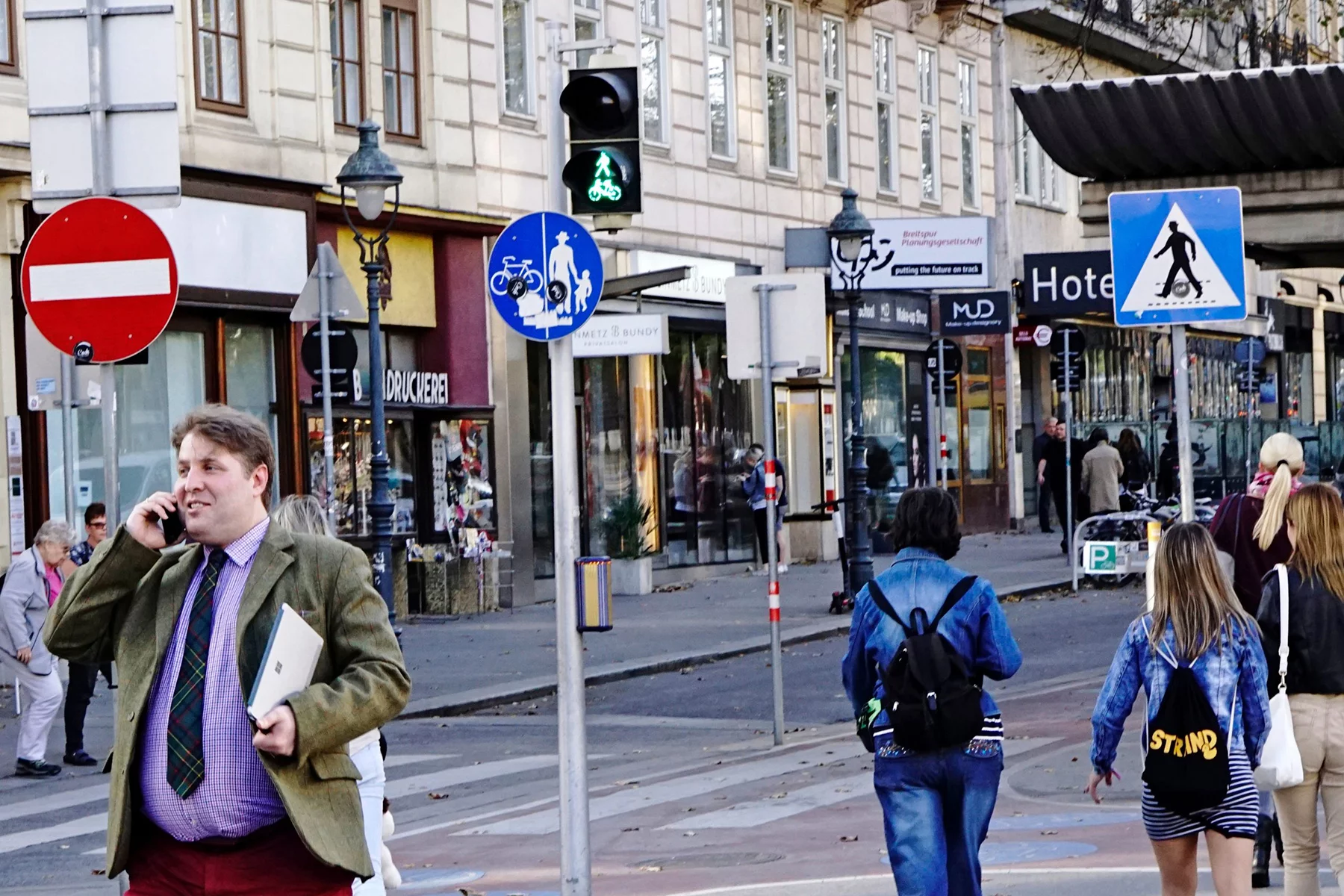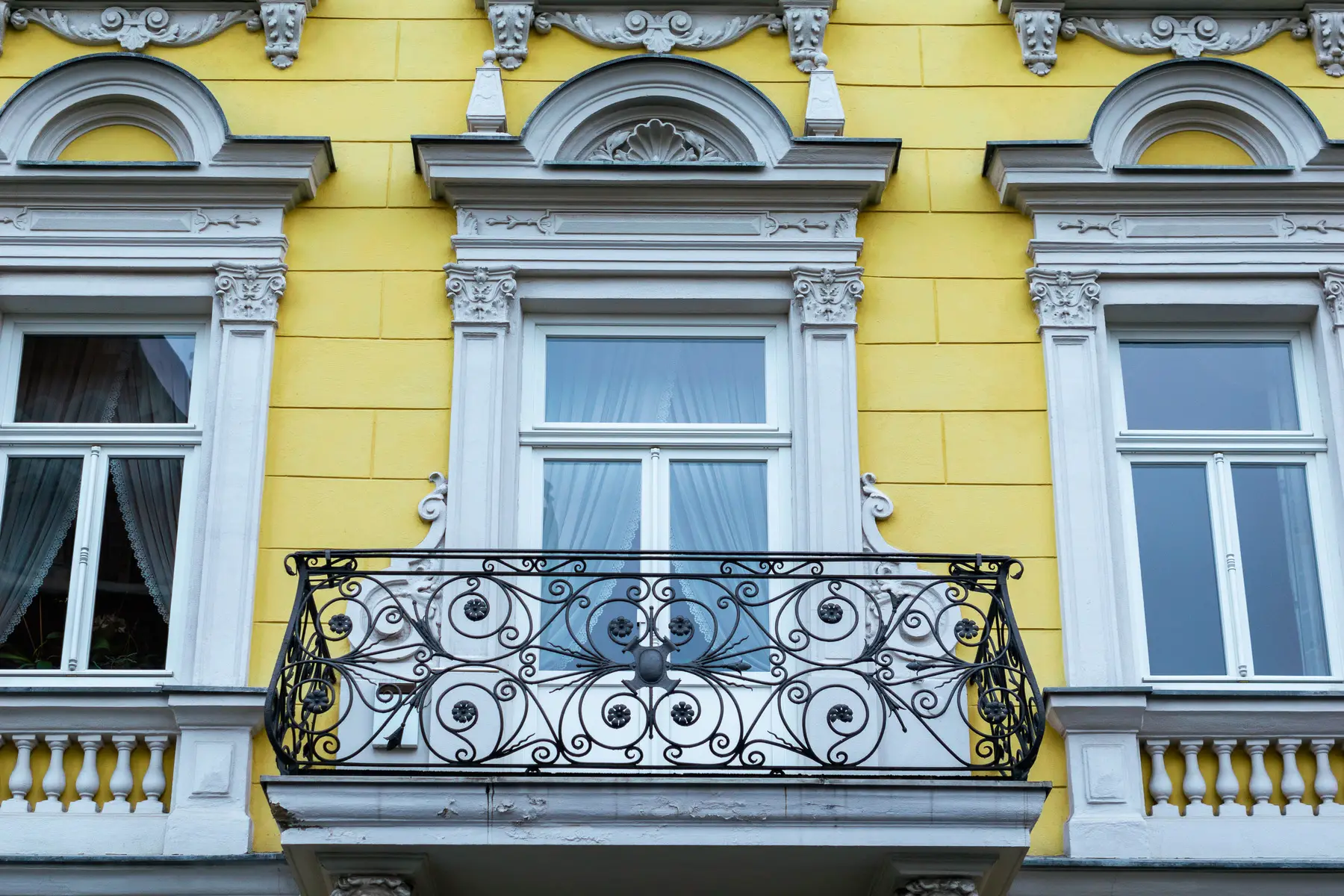Naturally, when you are considering moving to a new country, you will have a million questions about what it is like to live there as an expat. Of course, these will largely depend on your own personal circumstances in life; for instance, whether you are single and looking for love, or you have children and want to ensure that they get the best education possible. Then there is the question of budget, and whether the general cost of living in Austria will allow you to live the lifestyle you desire.
With so many burning questions on your mind, it can feel difficult to know where to begin. So to help you out, here are ten frequently asked questions about being an expat in Austria – answered.
- 1. What is it really like to live in Austria?
- 2. Can I afford to live in Austria?
- 3. Is it easy to find love as an expat in Austria?
- 4. What is it like to work in Austria?
- 5. Can I afford housing in Austria?
- 6. What is it like to be a female expat in Austria?
- 7. Is Austria a good place to raise a family?
- 8. What is the quality of healthcare in Austria?
- 9. What is the worst thing about living in Austria?
- 10. What is the best thing about living in Austria?
Sirelo
It's no secret that moving abroad can be stressful. Sirelo's team of removal advisers is here to help. They provide five free quotes from international shipping companies so you can find the best options at the best prices. Take the stress out of your relocation to Austria with Sirelo.
1. What is it really like to live in Austria?
As an expat, you will discover a plethora of delights living in Austria. The beautiful alpine country offers clean alpine air, efficient public transport, high-quality healthcare, and education; not to mention numerous stunning destinations in which to spend your free time.

However, there are some less appealing realities that you should also be aware of.
Making new friends
Firstly, Austrians move slowly. In general, they are not quick to warm to newcomers. Typically, Austrians tend to have an initial reserved and formal manner. They also value spending time with family as hugely important, which often doesn’t leave much spare time for making new friends. Of course, this won’t always be the case, but prepare to be patient when it comes to getting to know your neighbors, co-workers, and new acquaintances.
That said, once you have made the connection, you will likely find Austrian people to be extremely neighborly, and you may just make friends for life. Also, don’t forget that there are plenty of expat groups in Austria, such as Meetup, the Expat Club at the Vienna Business Agency, and Girl Gone International, that can help you meet like-minded people in your area.

And, once you have made friends, you will find that socializing with them at local bars and restaurants is very common. The coffeehouse scene is also integral to Austrian life, so you can expect to spend many enjoyable days chatting over a fantastic brew with your new friends.
And if you are successful in making some local Austrian friends, you will quickly notice that they love to get dressed up and attend concerts, cultural attractions, and balls. Yes, that right, balls. In fact, there are balls for every type of industry, including lawyers, real estate, universities, and more. Needless to say, donning a frock or a tux and dancing the night away is an old-world tradition that Austrians still cherish greatly.
Learning the local language
Another thing to be aware of is that German is the official language of Austria. Therefore, if you want to truly integrate into the local culture, it’s a good idea to start learning the lingo. That said, the level of spoken English in the country is still very good, given that it is taught in schools. Still, learning German is a good way to improve your job prospects, especially if you move there without securing a job beforehand.
2. Can I afford to live in Austria?
The high standard of living in Austria means that the cost of living can be high for expats too, depending on where you live in the country. Having said that, if you are moving to Austria with a job, many companies take the cost of living into account when offering salary packages. And on a side note, there is no minimum wage in Austria.

Rent and utilities
The cost of rent varies greatly across the country, ranging anywhere from €300 to €900 a month. However, the government has made a big commitment to social housing and the standard is high. The cost of utilities also varies, but generally, a standard unit will cost between €150 and €250 a month. For phones, you can start with a pay-as-you-go arrangement but packages including the internet are competitive and you can find a good deal if you do your research.
Healthcare costs
Essentially, your healthcare costs will all be included in your health insurance, which is packaged within your salary. A government-matched deduction is taken automatically from your pay and is free for those who earn under a certain amount. Fortunately, education in Austria is also free from the age of five. You can also enjoy a generous childcare allowance. However, preschool options vary in price, especially if you need an international or English-speaking one.

For more information, this handy YouTube video evaluates the cost of living in Austria on a day-to-day basis for things like groceries, entertainment, salaries, and property prices.
3. Is it easy to find love as an expat in Austria?
You will find that dating in Austria is much the same as anywhere else in Europe. Dating apps, social clubs, and meeting people through friends are the major ways couples tend to meet in the country.

However, the reserved and formal nature of Austrian people does tend to slow things down.
How to meet singles
That said, there is a surprisingly active speed dating scene in Austria if you want to move fast. CITY Speed Dating is the leading platform that brings people together in the cities of Vienna, Graz, Linz, and Salzburg. Since it launched in 2006, around 4,000 singles have attended their speed dating events at casual venues around the cities. These events cater to different age groups as well as special groups such as ‘exclusive dating’ or ‘younger seeks older’. The platform claims to have an 85% success rate in terms of the number of matches made. Therefore, this might be worth checking out if you are looking for adventurous ways to meet other singles.
If you are looking for a serious relationship, Parship.at or WebSingles.at is a good option. Tinder, Badoo, OkCupid, and Whispar are also popular choices.

Meanwhile, Taimi caters to those within the LGBTQ+ community who are looking for meaningful connections.
Learning the local dating etiquette
Characteristically, Austrian people value honesty, but of course, not everyone falls in this category. In terms of dating, this means they will tell it like it is. Additionally, Austrian men, in particular, are not famous for their great ability to flirt like say, their Italian neighbors. Therefore, in general, you may find that you need to be bold. On the positive side, though, you’ll know exactly where you stand without needing to sift through various levels of game-playing.
Another thing to bear in mind is that Austria is a traditionally Catholic nation and marriage still holds great importance. Same-sex marriage also became legal in 2019 and is on the rise. Importantly, Austrians, in general, tend to support gay marriage. As a result, the gay scene is a comfortable and inclusive one. In fact, a Pew Research Center poll from 2017 found that 72% of Austrians are in support of same-sex marriage.
4. What is it like to work in Austria?
Chiefly, Austrians enjoy a great work-life balance. Deadline-driven projects are the norm and people tend to work with efficiency so they can leave on time and spend time with their family and on leisure activities. Essentially, Austrians don’t work late and view this as ineptitude rather than enthusiasm for the job.

Additionally, punctuality is incredibly important, so for expats in Austria, showing up on time is a skill you will have to acquire if you want to enjoy life in the country. Furthermore, you won’t find much in the way of personal talk in the office because Austrians generally like to keep themselves to themselves, and chit-chat will be brief.
Finding a job
If you move to Austria without a job, make sure to check out our guides to finding a job and CV and job interview tips to get your job hunt off to a good start. You will find that the country has robust labor laws in place that offer broad protection to workers. Also, an Austrian employer may recruit a foreign national for employment as long as they have the correct permits. That said, the criteria will depend on the current labor market.
Essentially, there is a lack of local labor throughout Austria. Therefore, jobs within sectors like construction, healthcare, tourism, and hospitality are plentiful. Additionally, finance, technology, and insurance companies often have vacancies. There is a big demand for labor and expats will find the higher wages and plethora of jobs attractive, especially if they speak German. That said, speaking English can also be advantageous. You can hunt for jobs in the daily newspapers like Kronen Zeitung, Heute, Kleine Zeitung, Österreich, Kurier, NEUE, Die Presse, and Der Standard. Alternatively, you can search our Expatica jobs board and other portals like Karriere, Arbeitsmarktservice, Job.at, and Wienerjobs.
If you are thinking of starting a business in Austria as an expat, or working for yourself as a freelancer, this can be a good way to go. Essentially, if you are self-employed, you can register a company and sponsor your own working visa. However, for freelancers, this is difficult, and the reason why most expats work for companies that already exist.
5. Can I afford housing in Austria?
Essentially, Austria is an inexpensive place to live in. However, it all depends on where you live. If you would like a charming cottage in a rural town, for instance, then chances are, you will find a lovely one in your price range. If you are set on living in a city like Vienna, on the other hand, houses, and flats can be very expensive. Additionally, it’s a landlord’s market, meaning that there are plenty of tenants willing to rent and you will need to act quickly in order to bag a great place.

If you are going to buy a home or build your own, there are plenty of reasonable options in Austria, too. Sustainable building options are also at the forefront, so you will likely be looking at very cost-effective bills after the initial outlay of funds. But again, it depends on where you build or buy your home. There are some restrictions on expats buying a property in certain areas of Austria, but generally speaking, it is quite easy. The downside is the fees that come with buying a house, which can be hefty.
6. What is it like to be a female expat in Austria?
In a nutshell, pretty good really. This is because, statistically speaking, Austria is one of the safest countries in the EU in terms of crime.

The government has taken action to continue elevating the protection of its female citizens. In fact, a 2019 study assessing women’s rights around the world placed Austria in sixth place in terms of security, justice, and inclusion.
The gender pay gap
Conversely, Austria doesn’t score as highly for women when it comes to attaining power in economics, politics, and decision-making. In the Gender Equality Index 2020, Austria scores 66.5 out of 100, which is 1.4 points lower than the EU overall. However, the new 2020 coalition government marks the first time in Austrian history that women are a majority among cabinet ministers. So, perhaps, therefore, things are on the rise.
Women’s healthcare
When it comes to women’s healthcare in Austria, the standard is very good. Female life expectancy is 84 years old and compulsory health insurance includes women’s healthcare services. Emergency contraception is widely available in Austria without a doctor’s prescription. As a result, you can find it at most pharmacies. Additionally, abortion is legal and is a part of the healthcare provision for its citizens. There are also free, 24-hour Women’s Helplines at 0800/222 555 to help support women who are victims of domestic violence. For more information, you can read our guide to emergency numbers and services in Austria.
7. Is Austria a good place to raise a family?
They say it takes a village to raise a child. Well, in Austria, this can literally be the case. Essentially, people in Austria, particularly in smaller towns, tend to help each other out when it comes to parenting. The atmosphere is friendly and somewhat old-fashioned in that children are encouraged to play outdoors and enjoy the simple things in life.

Ideally, Austria is brimming with beautiful parks, child-friendly museums, kid-friendly restaurants, ice skating, skiing, boating parks, and picnic spots. If this all sounds a bit like Disneyland, well – it is! And that’s not all.
Having a baby in Austria
If you are planning on having a baby in Austria, you will be pleased to know that the maternity benefits and option to go part-time ensure that most women take their time returning to work. Additionally, childcare in Austria is universal. Amazingly, this means that all preschool-age children can get a place. You will just need to register at the Gemeindeamt (municipal office) or at the Magistrat (Magistrate). Child benefits for residents in Austria are also generous.
The education system
Austria has a highly reputable education system where the majority of learning takes place in school. Generally, homework is minimal and time outside of school is spent on extracurricular activities or with family. Austria also has one of the lowest crime rates in all of Europe. Essentially, the leading cause of death for children and adolescents is accidental.
8. What is the quality of healthcare in Austria?
Expats moving to Austria are in for another treat when it comes to the health of themselves and their family. Essentially, the country’s healthcare is excellent, affordable, and accessible. In fact, healthcare in Austria is renowned throughout Europe and the world for its high quality. Again, just like childcare, healthcare is universal and covers pretty much 100% of the population.

Once you move to Austria and register as a resident, you will receive your European Health Insurance Card (EHIC) which will grant you access to healthcare. Along with your card, a photo ID is all you need to take with you to medical appointments. Children and spouses of expats will automatically enroll under the working member’s insurance scheme, too.
Children’s healthcare
Children’s healthcare in Austria is a mixed system of GPs and pediatricians, and access to doctors and other specialists is widely available throughout the country. Furthermore, you don’t usually need a referral to access them. For children and adolescents up to 19 years of age, 70% of the services fall under the statutory health insurance provided by a ratio of 2.5 GPs to 1 pediatrician. Needless to say, if you have children, you can rest assured that they will be in very safe hands in Austria.
9. What is the worst thing about living in Austria?
Generally speaking, you are unlikely to find much to dislike about living in Austria in your day-to-day life. However, the evolving political situation and increasing discrimination toward asylum seekers have put many people on edge. The threat of terrorist attacks is also prevalent around the world and Austria is no exception.

Despite these concerns, LGBTQ rights, women’s rights, and civil and human rights, in general, are all progressive. Generally, Austria is a neutral and unbiased place to make your home.
The Austrian sense of humor
On a separate note, you may find that the Austrian sense of humor is quite different from that of your home country. Gentle ribbing is the general tone for amusing conversation among locals, so until you get used to it, try not to get your back up and instead join in the fun by sharpening your tongue.
Speaking of tongues, it also pays to learn some of the amusing, and often bizarre, Austrian phrases once you move to the alpine nation. After all, you don’t want to be left baffled – or perhaps even insulted – when your local friend tells says you have “pulled the butt card” or invites you to “tear a bench”. Curious to know what we’re talking about. Read on.
10. What is the best thing about living in Austria?
Well, aside from all the things we already mentioned, there are a few more gems awaiting you in the alpine nation. The coffee for a start. Indeed, café culture is huge in this caffeine-loving country. The bar and restaurant scene is also not to be missed; particularly in Vienna, which boasts everything from cozy beer taverns to stylish cocktail lounges.
This is just one of the many reasons that Austria’s capital frequently tops the charts of the best cities in the world to live in.
The cultural landscape
Aside from wining and dining, the country is full of rich history and culture which is reflected in the wealth of museums and attractions throughout the country. Whether you are passionate about history, art, movies, or technology, you will find a museum to satisfy your appetite. And did we mention that you can visit the childhood homes of Mozart, Beethoven, and Arnold Schwarzenegger?
A world of natural beauty
On a more environmental note, Austria is also leading the way in renewable energy and sustainable housing. Perhaps this is unsurprising, though, given that the country is home to some of the world’s most stunning natural landscapes; including the famous alpine hills that formed the backdrop to The Sound of Music.

Indeed, Austria’s scenery will truly take your breath away. Just look at this picture and tells us we’re wrong. Want to know more fascinating facts about Austria? Read on.












